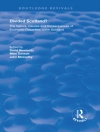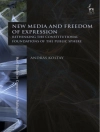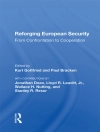The ability of US Supreme Court justices to dissent from the majority, to formally register and explain their belief that a case has been wrongly decided, represents a time-honored tradition of perhaps the most august American institution. Yet the impact of these dissents, which allow justices to engage in a dialogue over law and policy, has seldom, if ever, been the focus of dedicated study. Analyzing the influence of past dissents on later Supreme Court majority opinions, this book presents the first comprehensive study of the effects of dissenting opinions and illuminates which types of dissents successfully influence legal and policy debates, which ones fail to make a difference, and why.
Drawing on the private papers of the justices and original data, this book demonstrates that court majorities engage with dissents posing a particular threat to their opinions, and that they can be persuaded by thoughtful and careful dissenting arguments.
Inhoudsopgave
List of Figures
List of Tables
Acknowledgments
1. Introduction
2. Dissenting Behavior on the United States Supreme Court
3. Endeavoring to Accommodate: Dissent Coalition Behavior
4. Intra-Court Dialogue: Contemporaneous Effect of Dissents on Majority Opinions
5. Judicial Conversations Through Time: The Influence of Dissents on Future U.S. Supreme Court Majority Opinions
6. Conclusion
Notes
References
Over de auteur
Pamela C. Corley is Associate Professor of Political Science at Southern Methodist University. Amy Steigerwalt is Professor of Political Science at Georgia State University. Artemus Ward is Professor of Political Science at Northern Illinois University. Together they are coauthors of The Puzzle of Unanimity: Consensus on the United States Supreme Court.












